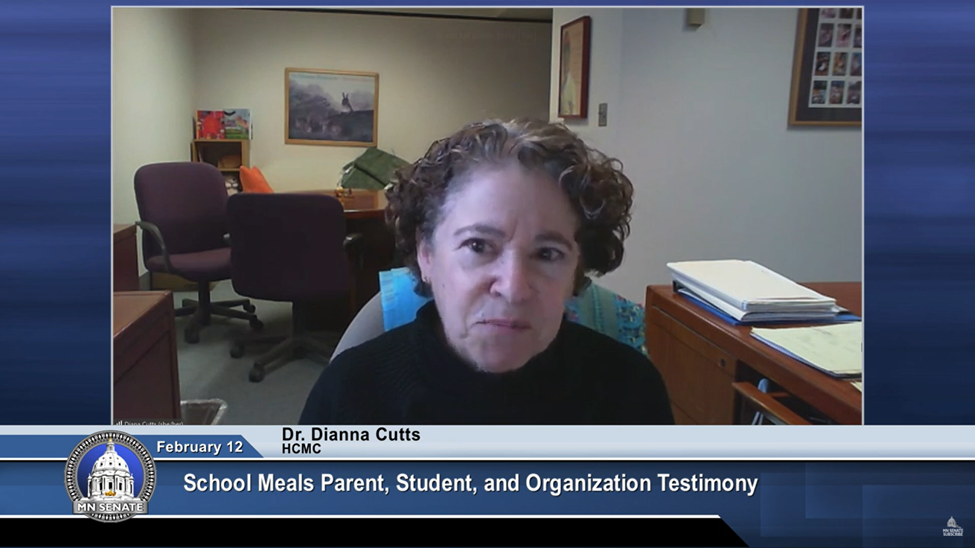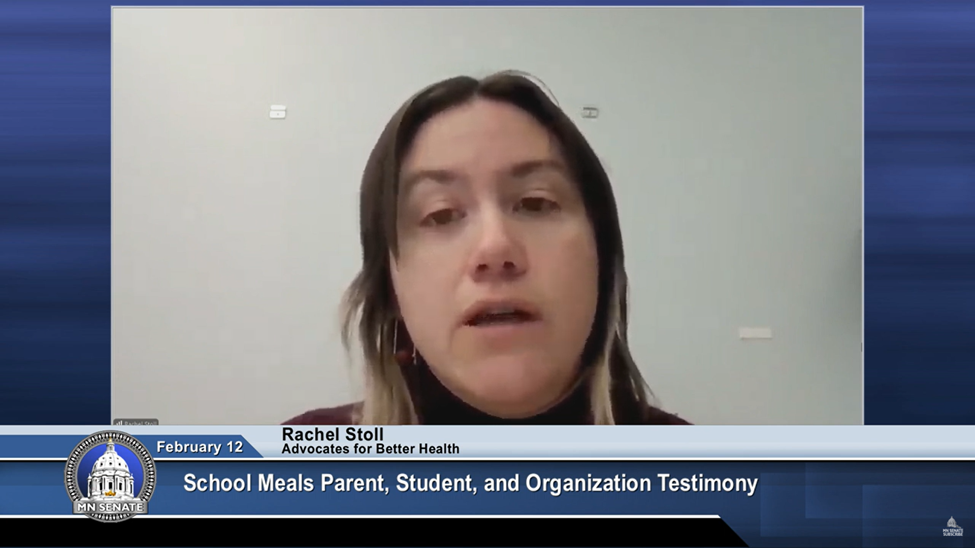Free School Meals: A Crucial Investment in Minnesota’s Children
On February 12th, the Senate Education and Finance Committee held an educational hearing on the Free School Meals program, featuring a diverse group of advocates, including farmers, teachers, and educational officials. Advocates for Better Health (ABH) worked to bring forward two key voices: Dr. Diana Cutts, a pediatrician and Chair of Pediatrics at Hennepin Healthcare, and Rachel Stoll, a community health worker and newly elected ABH Board President. Both speakers provided compelling testimony on the significance of the Free School Meals Program in Minnesota.
Dr. Diana Cutts: The Link Between Nutrition and Academic Success
Dr. Diana Cutts opened her testimony by sharing her extensive background in pediatric care and research. With over 30 years of experience, she has witnessed firsthand the profound impact of food insecurity on children’s health and development. She emphasized the necessity of ensuring all students have access to nutritious meals, stating:
“I hope you all had a good breakfast this morning because research shows that individuals are more likely to have better focus, retain information, and be more positive in their social interactions if they’ve had breakfast. For school-aged children, the data shows that adequate meals translate into improved academic performance and decreased absences, fewer visits to the nurses’ office, and less need for disciplinary action.”
Dr. Cutts highlighted the Free School Meals Program’s ability to bridge gaps in food access, eliminating stigma and fostering an environment where children can thrive. She also underscored the growing challenges posed by food insecurity and the uncertainty surrounding federal food assistance programs. Her testimony reinforced that providing free breakfast and lunch is not only a matter of nutrition but also an investment in the future success of Minnesota’s children.
Rachel Stoll: Community Health and the Broader Benefits of Universal School Meals
Rachel Stoll brought a unique perspective as both a community health worker and a mother in a rural farming community. She passionately advocated for the continuation of the Free School Meals Program, emphasizing its role in promoting public health and student success across urban, suburban, and rural settings. Stoll outlined three key benefits of the program:
Ensuring Access and Reducing Stigma – The program guarantees that every child, regardless of income, receives healthy meals without shame. It also eases financial strain on families, allowing them to allocate resources toward other essential needs like housing and transportation.
Boosting Student Success – Consistent access to nutritious meals enhances children’s ability to focus, learn, and succeed academically, leading to improved performance and overall well-being.
Investing in Long-Term Community Health – By preventing hunger-related health and learning issues today, Minnesota can reduce future healthcare costs and help children develop to their full potential, strengthening communities for generations to come.
Stoll concluded her remarks by urging policymakers to continue supporting the program, stating:
“No child should face the barrier of hunger while trying to learn.”
The Path Forward
The testimonies of Dr. Cutts and Rachel Stoll underscored the importance of the Free School Meals Program as a critical tool for combating food insecurity, improving educational outcomes, and fostering healthier communities. As Minnesota lawmakers deliberate on the future of this initiative, it is essential to recognize that ensuring all children have access to nutritious meals is an investment in the state’s future prosperity.
ABH remains committed to advocating for policies that prioritize child health and well-being, and we encourage community members to support this crucial program. Ensuring that every child has the nutrition they need to learn and grow is a responsibility we all share.


